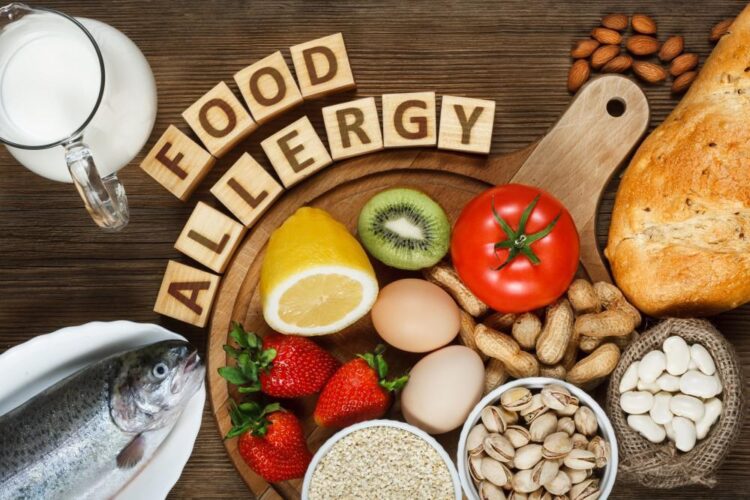
Eczema, also known as atopic dermatitis, is a common skin condition characterized by dry, itchy, and inflamed skin. It affects about 10-20% of children and 1-3% of adults worldwide. While the exact cause of eczema is unknown, research has shown that food allergies can play a significant role in its development and exacerbation. In this blog post, Dr. Tyler Basen will explore the relationship between food allergies and eczema, as well as discuss ways to manage eczema symptoms.
What Are Food Allergies?
Food allergies are an abnormal immune response to certain foods. When a person with a food allergy consumes a food they are allergic to, their immune system recognizes the allergen as a foreign invader and triggers an immune response. This immune response can lead to a range of symptoms, including hives, itching, swelling, vomiting, diarrhea, and in severe cases, anaphylaxis.
The Role of Food Allergies in Eczema
Research has shown that food allergies can play a significant role in the development and exacerbation of eczema. In fact, it is estimated that up to 30% of children with eczema have a food allergy. When a person with eczema consumes a food they are allergic to, their immune system reacts by releasing histamines, which can cause inflammation in the skin and worsen eczema symptoms.
Common Foods That Can Trigger Eczema
While any food has the potential to cause an allergic reaction, some foods are more commonly associated with triggering eczema symptoms than others. These include:
- Dairy products like milk, cheese, yogurt, and other dairy products are common allergens that can trigger eczema symptoms.
- Egg allergies are also a common cause of eczema in children.
- Wheat is a common allergen that can cause eczema symptoms, especially in people with a wheat allergy or celiac disease.
- Soy is a common allergen that can trigger eczema symptoms, especially in infants and young children.
- Peanut allergies are a common cause of eczema in children.
- Tree nuts like almonds, cashews, walnuts, and other tree nuts can trigger eczema symptoms in some people.
Managing Eczema Symptoms
If you suspect that you or your child has a food allergy that is triggering eczema symptoms, it is important to consult with a healthcare provider. Your healthcare provider can help you identify the allergen and develop a management plan to reduce eczema symptoms.
Some strategies that can help manage eczema symptoms related to food allergies include:
- Avoiding allergens – the most effective way to manage eczema symptoms related to food allergies is to avoid the allergen. This may involve switching to alternative foods or eliminating certain foods from your diet.
- Reading food labels – be sure to read food labels carefully to identify potential allergens. Many processed foods contain hidden allergens, so it is important to read labels even if a food does not seem like it would contain an allergen.
- Seeking medical treatment: If you or your child experiences severe eczema symptoms or anaphylaxis, seek medical treatment immediately. Your healthcare provider may prescribe medications, such as antihistamines or corticosteroids, to reduce symptoms.
- Keeping skin moisturized: Keeping the skin moisturized can help reduce eczema symptoms. Be sure to use a moisturizer that is fragrance-free and free of potential allergens.
Conclusion
Food allergies can play a significant role in the development and exacerbation of eczema. If you or your child has eczema, it is important to work with an allergist to learn more.
If you have more questions regarding eczema and or food allergies, please do not hesitate to contact us. Pacific Allergy & Asthma would be more than happy to assist and answer any questions.


